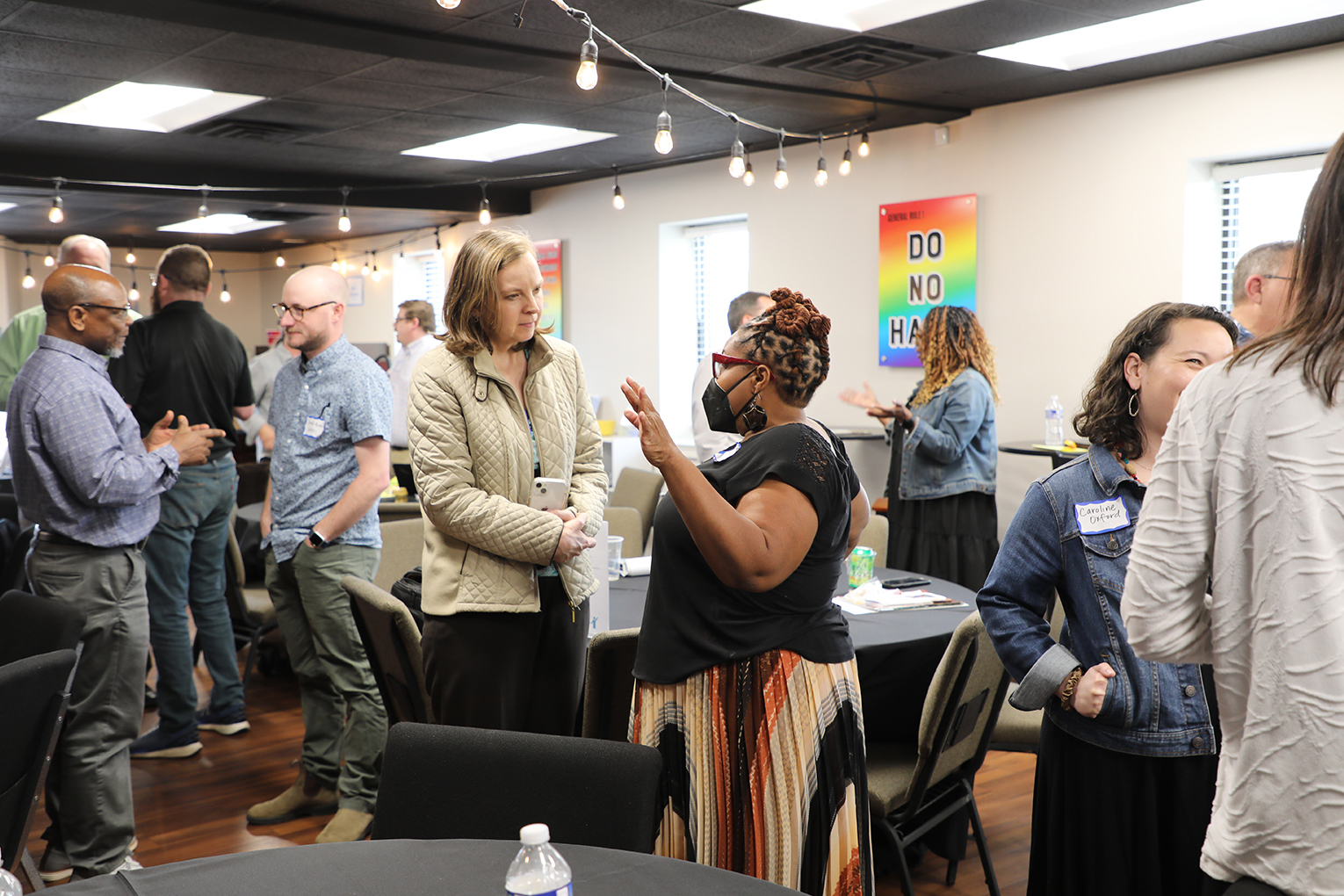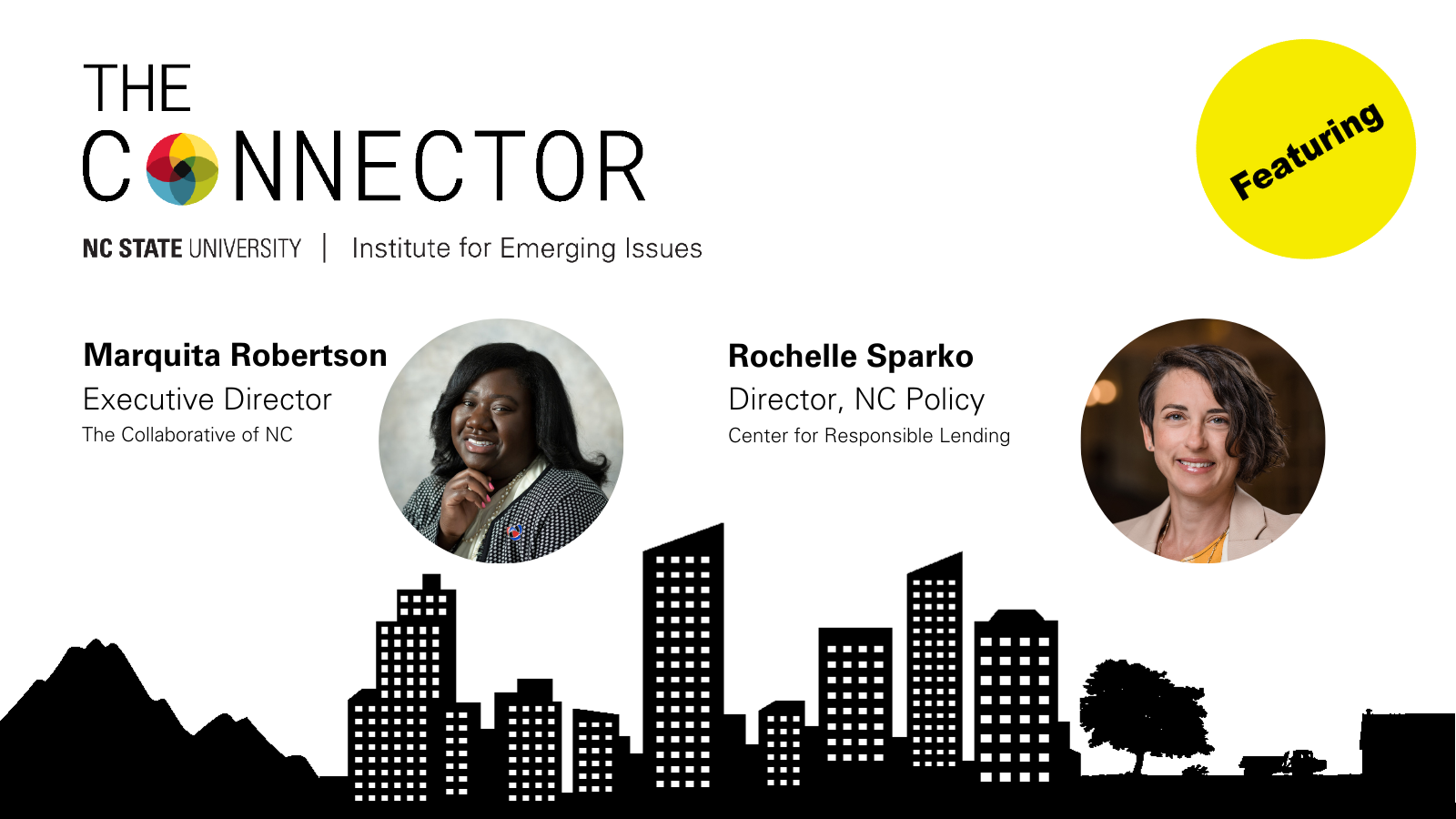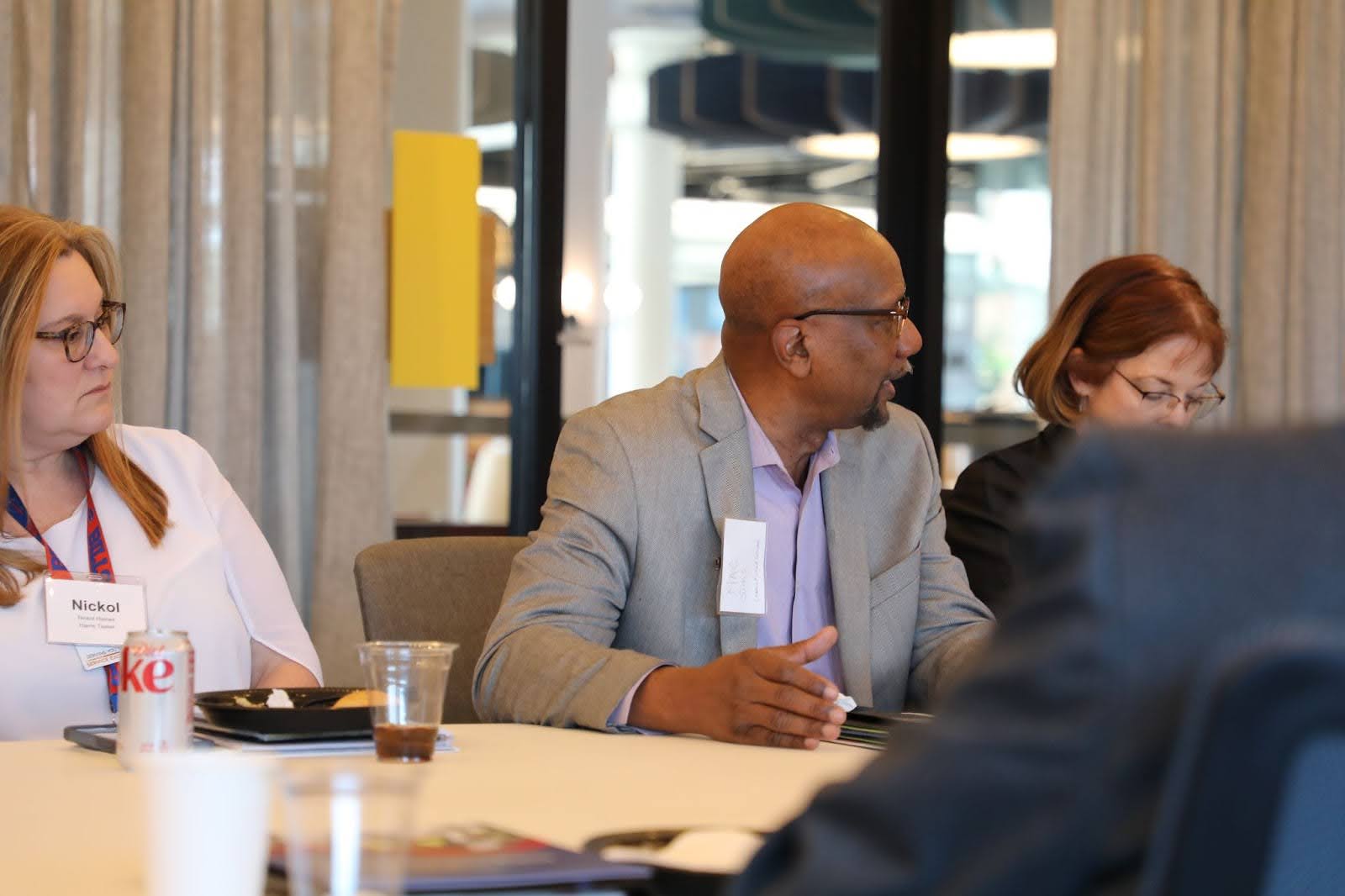COVID in Confinement

 Summary: Host Leslie Boney, Director of the Institute for Emerging Issues, talks with special guests William Lassiter (Deputy Secretary, Juvenile Justice, NCDPS), Dave Richard (Deputy Secretary for NC Medicaid) and Elizabeth Simpson (Associate Director, Emancipate NC).
Summary: Host Leslie Boney, Director of the Institute for Emerging Issues, talks with special guests William Lassiter (Deputy Secretary, Juvenile Justice, NCDPS), Dave Richard (Deputy Secretary for NC Medicaid) and Elizabeth Simpson (Associate Director, Emancipate NC).
*This episode of First in Future was recorded on Thursday, September 10th, and reflects information that was up-to-date at that time.*
View the slides here.
Listen to the podcast:
How did your team (at NC Medicaid) figure out what was going on and tackle the problem?
Dave Richard: At first there was a lot of confusion about the virus and trouble getting PPE. We shut down visitation early. Been aggressive about training for infection control. Frankly it was difficult. Starting to see staff outbreaks without patient outbreaks.
What about your strategy worked? What are you working on to get right?
Dave Richard: Prevention is the key – PPE, temperature testing, training on preventing infection. Staffing was a concern – had a crisis in long-term care facilities before COVID. Were able to increase staff pay. Work with strike teams to support understaffed homes. Instituted regular testing. Trying to work on allowing more visitation, making testing more available.
What difference would Medicaid expansion make in this situation?
Dave Richard: Could provide insurance to 600K more people in NC and address underlying health conditions – a broader view of addressing the pandemic and other health issues in NC.
You and your organization Emancipate NC are suing the State of NC to force change in the way the state is handling prisoners during the pandemic. Why?
Elizabeth Simpson: There are many people in state prisons and local jails who could safely be in the community. But we have a lack of will to let people out. Letting people out would reduce density in prisons – reduce risk of spread of COVID in prisons. Lockdowns in prisons are creating mental health crises – isolating people in harsh environment, lack of phone calls, outdoor recreation, visitation.
Who would you recommend being let out earlier to decrease density?
Elizabeth Simpson: People who will be released in the next six months, older people. Prison system announced a program called extended limits of confinement – to serve sentence outside of the prison – eligibility: release dates in 2021-22, nonviolent offenses, no infractions in the last 6 months, underlying health conditions. The governor has commuted no sentences in 4 years compared to KY governor who commuted 1,100 due to COVID in a smaller prison population.
Next step in the lawsuit?
Elizabeth Simpson: Motion pending right now – in Wake County Superior Court. Judge entered a preliminary injunction finding that the plaintiffs were likely to succeed on the merits of their claim that the state prisons were violating the Constitution in terms of exposing people to a serious risk of medical harm. Going back and forth figuring out how the prison system can get into compliance with the Constitution. Case will likely go to trial or have a final resolution next year. State has appealed the preliminary injunction but hasn’t asked for a stay in Superior Court.
How did your team think through this challenge to keep juvenile facilities safe?
William Lassiter: Took initial step of eliminating visitation. Diverted a lot of kids to electronic monitoring (ankle bracelet). Reduced population in facilities by over 25% to allow for social distancing. Screening, testing, temperature monitoring those coming into facilities. Boosted telehealth – ordered tablets for access to education and mental health services. Cleaned facilities regularly and hired more nurses to teach hand washing and social distancing.
Can electronic connectivity help alleviate mental health stress in confinement?
Dave Richard: Yes – encouraging that as part of our strategy, but there have been challenges. Grant program to get additional equipment and over 300 of our nursing homes have applied for that. Effective for many but not all. But it is an important tool we’re using now.
William Lassiter: Yes – successful increase in telehealth and tele-visitation. Now every facility has access to teleheath (they didn’t before). Also tele-court cut down on risk of virus spreading during transportation.
Elizabeth Simpson: First priority is release and not isolating people. If you are, make sure they have access to the broader world and stimulation for their minds. One concern with tech advances is sometimes the requirement for payment and disparities between those with money and those without. One silver lining is seeing tech advances, including in court.
Which of the national ideas are promising for NC?
Elizabeth Simpson: Hard for the state to do things when there are jurisdictional differences. Dismiss nonviolent offenses, divert people pre-trial into electronic monitoring. Reduce in-person court for things like traffic tickets, misdemeanors.


